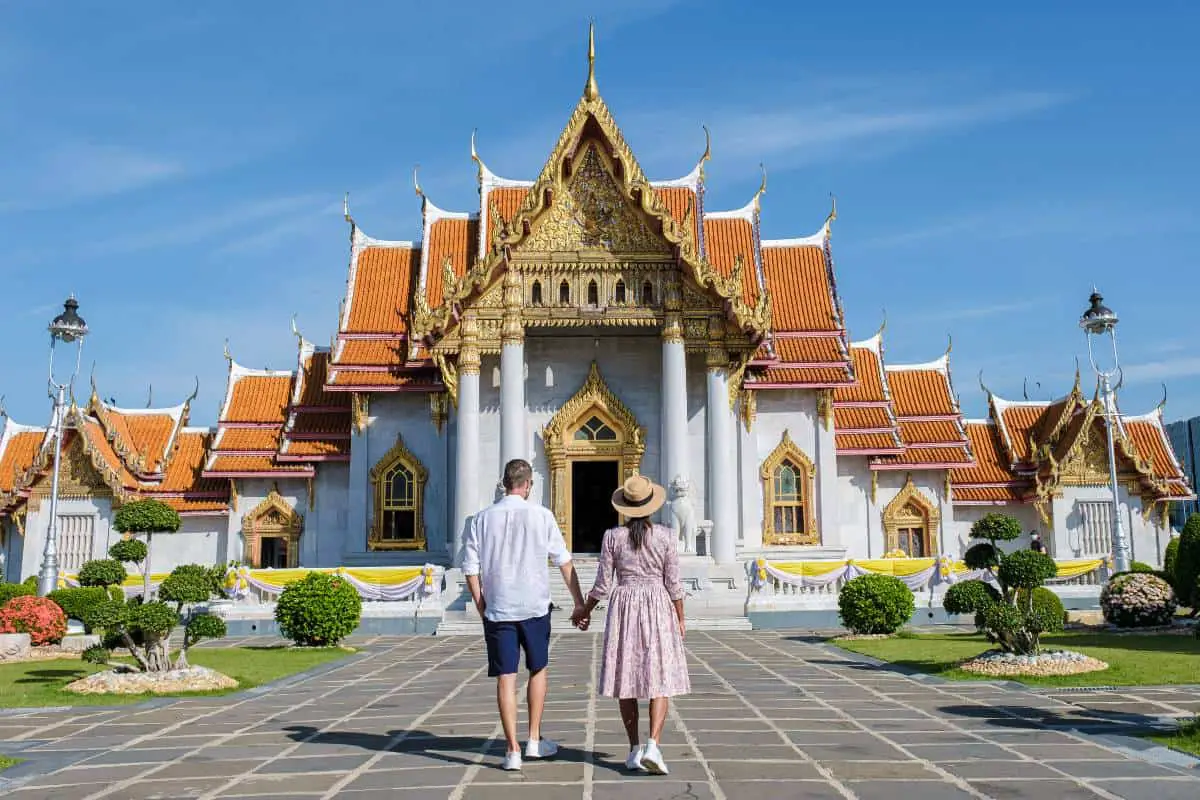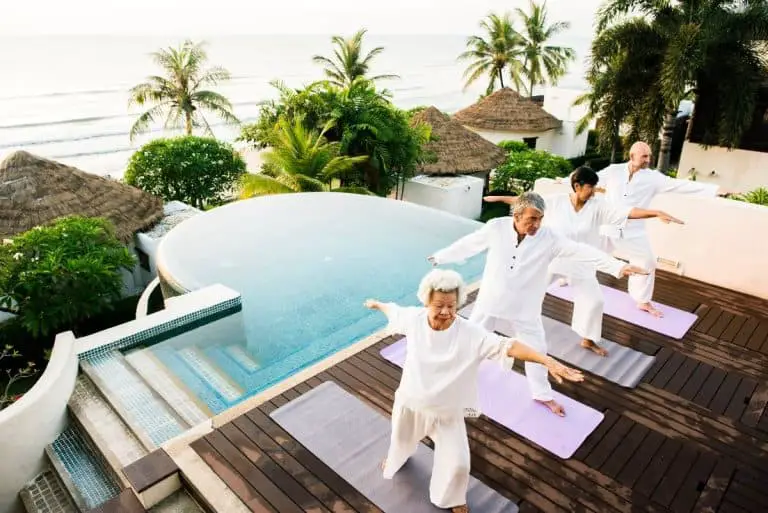The Ultimate Guide to Retiring in Thailand
Dreaming of swapping your 9-to-5 grind for palm trees and golden temples? You’re not alone! Thailand isn’t just a vacation hotspot – it’s a retiree’s paradise. In fact, Forbes Magazine ranked it 9th among the world’s best retirement destinations and the only Asian country to make the cut. Pretty impressive, right? Whether you’re lured by the cost of living that’ll make your pension stretch further, the mouthwatering cuisine, or the warm smiles of locals, Thailand has something for everyone. Ready to turn that retirement daydream into reality? Grab a cup of Thai iced tea, and let’s dive into the ultimate guide to retiring in Thailand!
Key Takeaways
- Thailand offers retirees a low cost of living and a high quality of life.
- Obtaining a retirement visa requires meeting age and financial criteria.
- Healthcare in Thailand is affordable and of good quality, especially in major cities.
Why Thailand? Because, Why Not?
Let’s be real – there are plenty of reasons why Thailand is a retiree’s dream. Imagine waking up to the sound of waves lapping at a pristine beach, or sipping coffee on your balcony overlooking lush mountains. And the best part? Your retirement savings can stretch way further here than back home.
Want to know a secret? Many retirees find they can live like royalty on a modest budget. We’re talking regular massages, dining out at fantastic restaurants, and maybe even hiring someone to help around the house. Sounds pretty sweet, right?
If you’re curious about all the perks, check out these top reasons to live in Thailand. Spoiler alert: the food alone might convince you!
Legal Considerations
Visa Options for Retirees
When considering retirement in Thailand, it’s crucial to understand the legal considerations, particularly regarding visa options. The most common visa for retirees is the Non-Immigrant O-A (Retirement) Visa, which is available to individuals aged 50 and above who meet certain financial requirements. This visa allows for a long-term stay of up to one year and can be renewed annually.
Another option to consider is the Thailand Elite visa program, which offers a range of long-term visas with additional perks and privileges. This program can be particularly attractive for those seeking a hassle-free way to stay in Thailand for extended periods, providing options for stays ranging from 5 to 20 years with benefits such as airport concierge services and visa assistance.
Work Permit Considerations
If you’re considering working during your retirement in Thailand, you’ll need a separate work permit. The process can be challenging but not impossible. You’ll generally need a non-immigrant visa, a job offer from a Thai company, and relevant qualifications. The employer must also meet certain requirements. While complex, many retirees find part-time work or consulting opportunities in Thailand to be rewarding experiences that enhance their retirement.
Financial Planning
Cost of Living
Thailand is often more budget-friendly than many Western countries, but costs can vary widely depending on location and lifestyle. A couple might spend anywhere from $1,500 to $2,500 per month, covering rent, utilities, food, transportation, healthcare, and entertainment. Some retirees live comfortably on less, while others prefer a more luxurious lifestyle. It’s fascinating to see how the cost of living in Thailand compares to the US – the differences might surprise you!
Retirement Budget
When planning your retirement budget, consider factors like your preferred location, type of accommodation, dining habits, and healthcare needs. There’s an excellent guide that breaks down how much money you need to retire comfortably in Thailand, which can be a great starting point for your financial planning.

Banking and Money Management
Opening a Bank Account
Managing your finances in Thailand becomes much easier when you have a local bank account. You’ll typically need your passport, a valid long-term visa, proof of address in Thailand, and a minimum deposit. Some banks may require additional documents. If you’re unsure about the process, there’s a helpful step-by-step guide on how to open a bank account in Thailand that walks you through everything you need to know.
Transferring Money
For transferring money from abroad, you have several options including international bank transfers, online money transfer services, and foreign currency exchanges. Each method has different fees and exchange rates, so it’s worth exploring various ways to send money to Thailand to find the most cost-effective solution for your needs.
Social Security Benefits While Living Abroad
If you’re entitled to social security benefits from your home country, you can often continue receiving them in Thailand. For instance, U.S. citizens can typically receive Social Security payments in most countries abroad. However, there are some exceptions and restrictions to be aware of.
You may need to report your change of address, complete periodic questionnaires to confirm your eligibility and set up direct deposit. It’s a complex topic, but there’s an informative article that explains how social security benefits work while living abroad. It’s definitely worth reading to ensure you’re not missing out on any benefits you’re entitled to.
Healthcare and Wellness
Overview of Thailand’s Healthcare System
Healthcare is a top priority for many retirees, and Thailand has gained a reputation for its high-quality medical services at affordable prices. The country boasts a well-developed healthcare system with both public and private options. For a comprehensive overview, you can learn more about understanding Thailand’s healthcare system.
Health Insurance Options for Retirees
It’s highly recommended that retirees obtain comprehensive health insurance coverage. There are various options available, including local Thai insurance plans and international health insurance policies designed for expatriates. To explore your options, you can refer to this guide on health insurance for retirees in Thailand.
Medical Tourism in Thailand
Thailand has also become a popular destination for medical tourism, attracting patients from around the world with its combination of high-quality care and affordable prices. If you’re curious about why many choose Thailand for medical procedures, you can read about why medical tourism is popular in Thailand.
Best Hospitals for Expats
For expatriates seeking medical care, certain hospitals stand out for their exceptional services and international standards. To find the most suitable healthcare facilities, you can explore this list of the best hospitals for expats in Thailand.
Traditional Thai Medicine and Alternative Therapies
While modern medicine is readily available, Thailand also offers a rich tradition of alternative therapies and traditional medicine. To understand how these practices integrate with modern healthcare, you can learn more about traditional and modern medicine in Thailand.
Wellness Retreats and Spa Culture
The spa and wellness culture in Thailand is renowned worldwide, offering retirees ample opportunities to relax and rejuvenate. For those interested in exploring these options, you can discover the best spas and wellness retreats in Thailand.
Staying Fit and Active in Retirement
Staying active and fit is an important aspect of a healthy retirement, and Thailand offers numerous options for maintaining an active lifestyle. If you’re looking for ways to stay in shape, you can find information on the best fitness and yoga studios in Thailand.
Navigating the Red Tape (It’s Not as Scary as It Sounds)
Okay, let’s talk visas. I know, I know – not the most thrilling topic, but stick with me. Getting a retirement visa in Thailand isn’t as daunting as you might think. If you’re over 50 and can show you’ve got enough funds to support yourself, you’re already halfway there.
For those who want to go all out, there’s the Thailand Elite visa program. It’s like a VIP pass to living in Thailand. Airport fast-track, anyone?
And hey, if you’re thinking of doing a bit of work on the side (because retirement doesn’t mean you have to stop being awesome), you’ll need a work permit. It’s a bit of a process, but nothing you can’t handle. Here’s the lowdown on getting a work permit in Thailand.

Making Your Money Work for You
Now, let’s talk baht – that’s Thai currency, by the way. You’ll be happy to know that your money can go a long way here. A couple can live comfortably on about $1,500 to $2,500 a month, depending on your lifestyle.
Want to live it up in a swanky Bangkok condo? You might need a bit more. Prefer a laid-back life in a beachside town? You could get by on less. It’s all about finding your sweet spot.
Curious about the nitty-gritty details? Take a peek at this breakdown of how much money you need to retire in Thailand. It might just make your accountant smile!
Finding Your Thai Home Sweet Home
Alright, let’s talk about where you’re going to lay your head at night. Thailand’s got options galore – from sleek city apartments to beachfront villas and everything in between.
Trying to decide between renting and buying? It’s a tough call, I know. Renting gives you the freedom to try out different areas (beach life this year, mountain retreat the next?), while buying could be a solid investment. Why not weigh the pros and cons of renting vs. buying a house in Thailand?
And here’s a hot tip: before you sign on the dotted line for any property, give it a good once-over. These property inspection tips for Thailand could save you from some headaches down the road.
Embracing the Thai Way of Life
Now, this is where the fun really begins. Living in Thailand isn’t just about the beautiful scenery or the cost savings – it’s about immersing yourself in a whole new way of life.
You’ll discover the joy of haggling at local markets, master the art of eating with a spoon and fork (chopsticks are for noodles!), and learn to navigate the organized chaos of Thai traffic. It’s all part of the adventure!
And the food? Oh boy, get ready for a flavor explosion. From fiery street food to elegant royal cuisine, your taste buds are in for a treat. Dive into the delicious world of Thai food – just remember to start mild if you’re not used to spice!
Sure, there might be moments of culture shock. Like when you realize “Thai time” is a real thing, or when you accidentally wear your outdoor shoes inside someone’s home. But don’t worry – here are some tips on how to deal with culture shock in Thailand. Before you know it, you’ll be teaching the newbies!

Housing Options
When it comes to setting up your retirement nest in Thailand, you’ve got plenty of choices. Let’s break it down:
Renting vs. Buying Property
Deciding whether to rent or buy is a big decision. Renting gives you flexibility – you can try out different areas without committing. It’s often cheaper in the short term too. On the flip side, buying property can be a good investment, especially if you plan to stay long-term.
In Thailand, foreigners can own condos outright, but there are restrictions on buying land. That’s why many expats choose to rent or buy condos. Curious about which option might be best for you? Check out this detailed comparison of renting vs. buying a house in Thailand. It covers all the pros and cons to help you make an informed choice.
Popular Expat Areas
Thailand has several hotspots that attract expats and retirees. Bangkok, the bustling capital, is popular for its modern amenities and vibrant city life. Chiang Mai in the north is loved for its cooler climate and rich culture. Down south, places like Phuket and Koh Samui offer beautiful beaches and a laid-back lifestyle.
Each area has its own unique charm and expat community. Some areas are more budget-friendly, while others offer luxury living. Want to know more about where expats are settling? This guide on where expats live in Thailand gives you the lowdown on popular areas and what they offer.
Choosing a Retirement Home
Picking the right retirement home is crucial for your happiness in Thailand. Think about what’s important to you. Do you want to be near the beach or in the mountains? In a busy city or a quiet village? Consider factors like climate, access to healthcare, and proximity to amenities.
Don’t forget about the type of home too. Condos are popular for their security and amenities, while houses offer more space and privacy. For a comprehensive guide on finding your perfect retirement spot, check out these tips for choosing a retirement home in Thailand.
Property Inspection Tips
Before you commit to any property, whether renting or buying, it’s crucial to give it a thorough inspection. This step can save you from headaches down the road. Look for signs of water damage, check the electrical systems, and test the plumbing. If you’re not sure what to look for, consider hiring a professional inspector.
In Thailand, some issues might be different from what you’re used to back home. For example, you’ll want to check for good ventilation to combat the humid climate. For a detailed checklist and expert advice, take a look at these property inspection tips for Thailand.
The Cost of Accommodation in Thailand
One of the best things about retiring in Thailand is how far your money can go, especially when it comes to housing. Let’s break it down:
- In cities like Chiang Mai or Pattaya, you can rent a nice one-bedroom condo for about 15,000 baht (that’s around $446) per month. These places are great if you want to be in the middle of the action, with lots to see and do nearby.
- If you’re dreaming of beach life, places like Phuket or Koh Samui might be more your style. Here, you can rent fancy villas with amazing sea views, but they’ll cost you more – often over 80,000 baht (about $2,200) a month.
- Utilities like electricity, water, and internet are pretty affordable too. Most people spend between 2,500 to 10,500 baht ($75 to $300) a month on these, depending on how big their place is and how much they use.
General Cost of Living
Thailand is known for being easy on the wallet, and that includes day-to-day expenses:
- Food is a big highlight. You can get delicious meals from street vendors or local markets for less than 100 baht (about $3) per person. If you want to treat yourself to a fancy restaurant, expect to pay around 1,500 baht ($45) per person.
- Getting around is affordable too. Public transport like buses and trains are super cheap. Most people don’t spend more than 3,500 baht (about $100) a month on transportation.
- If you prefer more comfort, taxis and ride-sharing apps like Grab (it’s like Uber) are widely available in cities. They cost a bit more but are still pretty reasonable.
Healthcare Costs
Healthcare in Thailand is another big plus for retirees:
- The quality is great, and it’s much cheaper than in places like the U.S. or Europe.
- Many hospitals have staff who speak English, which is really helpful.
- You can get everything from regular check-ups to major treatments without breaking the bank.
Remember, while these costs give you a good idea, prices can vary depending on where exactly you choose to live and your lifestyle. The great thing about Thailand is that you can find options to fit almost any budget, from simple and affordable to luxurious and indulgent.
Daily Life in Thailand
Living in Thailand is an adventure every day. Here’s what you can expect:
Transportation Options
Getting around in Thailand is part of the fun! In big cities like Bangkok, you’ve got lots of choices:
- The BTS Skytrain and MRT subway are fast and avoid traffic jams.
- Tuk-tuks are those famous three-wheeled vehicles – a bit bumpy but a classic Thai experience.
- Taxis are everywhere and pretty cheap compared to Western countries.
- Grab (like Uber) is popular for easy, air-conditioned rides.
In smaller towns, you might use Songthaews (shared pickup trucks) or rent a motorbike. For more details on how to zip around Thailand, check out this guide on transportation in Thailand.
Climate and Weather Considerations
Thailand’s weather is generally warm and tropical, but it varies:
- The hot season (March to May) can be really sweaty.
- The rainy season (June to October) brings short, heavy showers but it’s not all-day rain.
- The cool season (November to February) is the most pleasant, especially up north.
Each region has its own climate quirks. For instance, the south stays pretty warm year-round, while the north can get quite cool in winter. To plan your perfect Thai weather experience, read more about the climate in Thailand.
Food and Dining

Thai food is world-famous, and for good reason! Here’s what to expect:
- Street food is everywhere, cheap, and delicious. Try pad thai or mango sticky rice!
- Local markets offer fresh ingredients if you like to cook.
- Restaurants range from simple local eateries to fancy international places.
- Each region has its own specialties. Northern food is different from Southern dishes.
Thai food can be spicy! Start mild and work your way up. For a mouthwatering preview of what’s in store, explore how the food is in Thailand.
Shopping and Markets

Shopping in Thailand is a blast:
- Modern malls in big cities have everything from local brands to luxury goods.
- Night markets are great for souvenirs, clothes, and trying street food.
- Fresh markets sell fruits, veggies, and local products.
- Floating markets offer a unique shopping experience from a boat!
Whether you’re looking for handmade crafts or the latest tech gadgets, Thailand’s got it. For a rundown of the best places to shop till you drop, check out the best shopping destinations in Thailand.
Cultural Adaptation
Moving to Thailand isn’t just about finding a new place to live – it’s about embracing a whole new way of life. Let’s dive into how you can make the most of your Thai adventure!
Learning Thai Language
While you can get by with English in tourist areas, learning some Thai will enrich your experience tremendously. It’s not just about communication; it’s about connecting with the locals and showing respect for their culture.
Thai can be challenging with its tones and unfamiliar script, but don’t let that intimidate you. Start with simple phrases like “hello” (sawadee khrap/ka) and “thank you” (khob khun khrap/ka). Even basic Thai will bring smiles to locals’ faces and open doors to deeper cultural experiences.
For those eager to start their language journey, there are plenty of Thai language resources for beginners. From language apps to local classes, you’ll find options to suit your learning style.
Understanding Thai Customs and Etiquette
Thai culture is steeped in tradition, and understanding local customs will help you navigate social situations with ease. Some key points to remember:
- The wai (a slight bow with palms pressed together) is the traditional Thai greeting.
- Showing respect for the royal family is crucial.
- It’s polite to remove your shoes before entering homes and some businesses.
- The head is considered sacred, while feet are considered low – avoid touching someone’s head or pointing with your feet.
These are just the basics. For a more comprehensive guide, check out Thai etiquette 101: customs you need to know. It’s packed with insights that’ll help you blend in and show respect for local traditions.
Dealing with Culture Shock
Even the most prepared expats can experience culture shock. It’s normal to feel overwhelmed or frustrated at times when adjusting to life in Thailand. Some common challenges include:
- Different concepts of time and punctuality
- Unfamiliar social norms and communication styles
- Adjusting to the tropical climate and spicy food
- Navigating bureaucracy and paperwork
Remember, culture shock is a natural part of the adaptation process. Be patient with yourself and keep an open mind. For practical tips on smoothing your transition, take a look at this guide on how to deal with culture shock in Thailand. It offers strategies to help you not just cope, but thrive in your new home.
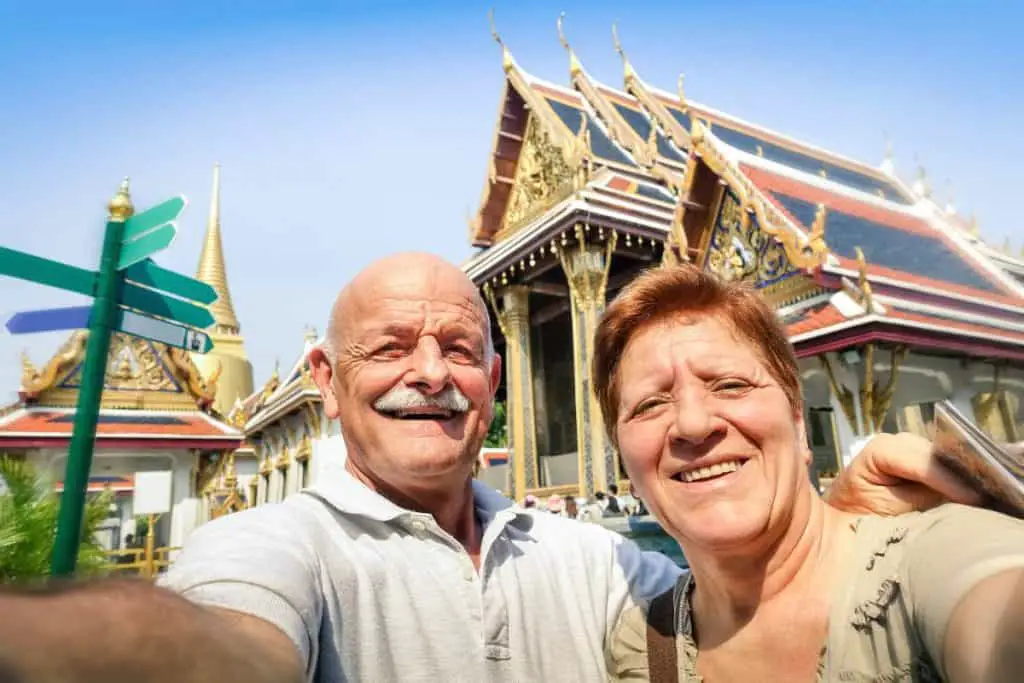
Celebrating Thai Festivals and Holidays
One of the joys of living in Thailand is experiencing its vibrant festivals and holidays. These events offer a window into Thai culture and are often incredibly fun to participate in. Some highlights include:
- Songkran: The Thai New Year water festival in April
- Loy Krathong: The beautiful festival of lights in November
- Yi Peng: The Lantern Festival in Chiang Mai
- Vegetarian Festival: A fascinating event, especially in Phuket
Each festival has its own customs and significance. Joining these celebrations is a great way to immerse yourself in Thai culture and connect with your local community. To get a taste of what’s in store throughout the year, explore Thailand’s festivals and holidays. This guide will help you plan your calendar and ensure you don’t miss out on these unforgettable experiences.
Adapting to Thai culture is an ongoing journey filled with discoveries, challenges, and rewards. Embrace the differences, stay curious, and don’t be afraid to make mistakes – it’s all part of the adventure. Before you know it, you’ll find yourself feeling right at home in the Land of Smiles, with a deeper appreciation for its rich cultural tapestry.
Social Life and Activities

Expat Communities in Thailand
Thailand hosts a diverse range of expatriate communities, offering newcomers a sense of familiarity and support in their adopted homes. These communities play a crucial role in helping retirees adjust to life in Thailand, providing both practical assistance and social connections.
From bustling urban centers to serene coastal towns, expat groups organize various events and activities, fostering a sense of belonging and camaraderie. For a comprehensive overview of expatriate communities across Thailand, including insights into popular expat hubs and community activities, visit Expatriate Communities in Thailand.
Volunteer Opportunities

For retirees looking to give back to their new community and engage more deeply with Thai society, volunteering presents a fulfilling option. Thailand offers a wide array of volunteer opportunities, ranging from teaching English and supporting community development projects to participating in environmental conservation efforts.
These experiences not only contribute positively to local communities but also provide retirees with a sense of purpose and deeper cultural understanding. To explore various volunteering options suitable for retirees in Thailand, check out Volunteering in Thailand for Retirees.
Outdoor Activities and Fitness

Thailand’s diverse landscapes offer an abundance of outdoor activities for retirees to enjoy. From trekking through lush jungles in the north to snorkeling in crystal-clear waters in the south, the country caters to all levels of fitness and adventure preferences. Engaging in these activities not only promotes physical health but also provides opportunities to connect with nature and like-minded enthusiasts. For an extensive list of outdoor pursuits available in Thailand, along with tips for getting started, visit Top Outdoor Activities in Thailand.
Immersing Yourself in Thai Culture and Experiences
Thailand offers a wealth of cultural experiences and hidden treasures for retirees looking to make the most of their golden years. From bustling markets to serene temples, there’s always something new to discover.
Unforgettable Cultural Encounters
Thailand’s rich heritage comes alive through its vibrant festivals, intricate arts, and mouthwatering cuisine. Retirees can explore a myriad of cultural experiences that will leave lasting impressions. Whether it’s learning traditional Thai cooking, attending a Muay Thai match, or participating in a meditation retreat, these activities offer unique insights into the heart of Thai culture.
Unearthing Thailand’s Secret Spots
While popular destinations like Bangkok and Phuket are certainly worth visiting, Thailand’s true magic often lies in its lesser-known locales. Adventurous retirees can embark on journeys to discover hidden gems scattered throughout the country. From secluded beaches in Trang to the misty mountains of Mae Hong Son, these off-the-beaten-path destinations promise tranquility and authentic experiences away from the tourist crowds.
Embracing Thailand’s Vibrant Nightlife
Contrary to popular belief, retirement doesn’t mean the fun stops after sunset. Thailand’s diverse nightlife scene caters to all tastes and ages. Retirees can enjoy a variety of evening entertainment options, from elegant rooftop bars with stunning city views to laid-back beach clubs perfect for watching the sunset. Whether you’re in the mood for live music, cultural performances, or simply a relaxing night out, Thailand’s nightlife has something for everyone.
Ensuring Safety and Peace of Mind in Thailand
When retiring in Thailand, safety and security are paramount concerns. Understanding the landscape of personal safety, healthcare, and emergency preparedness can help retirees enjoy their new life with confidence.
A Safe Haven for Retirees

Thailand is generally considered a safe country for retirees, offering a welcoming environment and a relatively low crime rate. However, as with any country, it’s important to exercise common sense and awareness. Learn about the overall safety situation in Thailand to make informed decisions about where to live and how to conduct your daily life. Many retirees find that Thai communities are friendly and supportive, contributing to a sense of security in their new homes.
Staying One Step Ahead of Scams
While Thailand is largely safe, tourists and expatriates can sometimes be targets for scams. Being informed is your best defense. Familiarize yourself with common scams in Thailand and how to avoid them. From tuk-tuk tricks to gem shop schemes, knowing what to look out for can save you from unnecessary hassle and financial loss. Remember, if something seems too good to be true, it probably is.
Access to Emergency Services and Healthcare

Thailand boasts a robust healthcare system, with many hospitals offering world-class care, especially in major cities. Familiarize yourself with local emergency numbers and the locations of nearby hospitals and clinics. Many facilities have English-speaking staff, which can be crucial in emergencies. It’s also wise to research the quality of healthcare in your chosen area, as standards can vary between urban and rural locations.
Preparing for Natural Disasters
While Thailand is generally stable, it can experience natural disasters such as floods and tropical storms. Stay informed about potential risks in your area and follow local guidelines for disaster preparedness. Having an emergency kit and knowing evacuation routes can provide peace of mind and ensure you’re ready for any situation.
Protecting Your Health and Finances
Comprehensive health and travel insurance is essential for retirees in Thailand. Look for policies that cover both routine healthcare and emergency situations. Some plans may also include medical evacuation, which can be crucial if you need to return to your home country for treatment. Remember to review your policy regularly and understand what’s covered, especially regarding pre-existing conditions and age-related restrictions.
Technology and Connectivity

Internet and Mobile Services in Thailand
Thailand offers robust internet and mobile services, allowing retirees to stay connected with loved ones back home and manage their affairs efficiently. Major cities and tourist areas generally have excellent coverage and high-speed internet options.
Useful Apps for Ex-pats in Thailand
Various applications designed for expatriates in Thailand can simplify daily life, from navigating public transportation to arranging food delivery. For a comprehensive list of useful apps for expats living in Thailand, covering everything from language translation to local services, visit Apps for Thailand
Staying Connected with Family Back Home
Technology plays a vital role in modern retirement, especially for those residing abroad. Retirees in Thailand can easily stay in touch with family and friends through various communication apps and social media platforms.
Environmental Considerations
Climate and Weather Patterns

Thailand’s tropical climate is a major draw for many retirees, but it’s essential to understand the weather patterns and prepare accordingly. This includes awareness of the rainy season and potential natural disasters. For detailed information about Thailand’s climate, including seasonal variations and what to expect throughout the year, check out Climate in Thailand.
Natural Disasters and Preparedness
As mentioned earlier, Thailand can experience various natural disasters. This section will delve deeper into specific types of natural disasters common in different regions of Thailand and provide more detailed preparedness strategies.
Environmental Issues and Sustainability in Thailand
Environmental issues and sustainability are growing concerns in Thailand, with many expatriates and locals alike seeking ways to adopt more environmentally conscious lifestyles. For information on sustainable living practices in Thailand and how retirees can contribute to environmental conservation efforts, visit Living Sustainably in Thailand.
Legal and Financial Matters

Navigating Legal and Financial Waters in Thailand
Understanding the legal and financial landscape is crucial for retirees settling in Thailand. From tax obligations to estate planning, being well-informed can help you make sound decisions and avoid potential pitfalls.
Grasping Thai Law Basics
As a retiree in Thailand, familiarizing yourself with the country’s legal system is essential. While you don’t need to become an expert, understanding key aspects like visa requirements, property ownership laws, and local regulations can smooth your transition. For instance, Thailand has specific rules about foreigners owning land, which might affect your decision to buy property. It’s often beneficial to consult with a local legal expert who can guide you through the intricacies of Thai law as it applies to retirees.
Tackling Tax Implications
One of the most important financial considerations for retirees abroad is managing their tax obligations. While Thailand itself has relatively favorable tax policies for retirees, you may still have tax responsibilities in your home country.
Understanding what happens if you don’t file taxes while living abroad is crucial to avoid potential legal issues and penalties. Some countries have tax treaties with Thailand, which can affect how your income is taxed. It’s advisable to consult with a tax professional who specializes in international taxation to ensure you’re compliant with both Thai and your home country’s tax laws.
Planning Your Estate in Thailand
Estate planning takes on new dimensions when you’re retiring in a foreign country. While it might not be the most pleasant topic to consider, having a clear plan for your assets is crucial for peace of mind. In Thailand, the laws governing inheritance and estate distribution can be quite different from what you’re used to. Consider creating a will that’s valid in both Thailand and your home country. Remember that Thai law may not recognize a foreign will in all circumstances, so it’s often recommended to have a separate Thai will for assets held in Thailand.
Preparing for the Unexpected
Power of attorney and healthcare directives are important documents that can save your loved ones from difficult decisions and legal complications if you become incapacitated. In Thailand, these concepts exist but may work differently than in your home country.
A power of attorney can allow a trusted individual to make financial or legal decisions on your behalf, while healthcare directives can specify your wishes for medical treatment. It’s important to have these documents prepared in both Thai and your native language and to ensure they’re recognized under Thai law.
When dealing with these complex legal and financial matters, it’s always recommended to seek professional advice. An experienced lawyer or financial advisor who understands both Thai law and the unique needs of retirees can be invaluable in helping you navigate these waters.
Travel Within and From Thailand
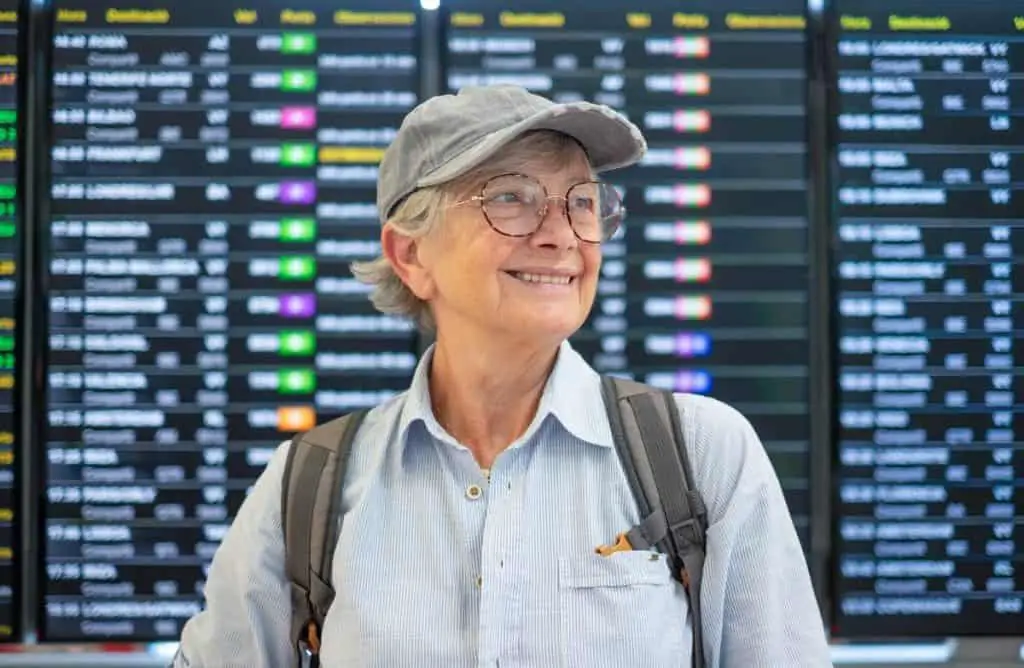
Domestic Travel Options and Popular Destinations
Thailand offers a diverse array of domestic travel options, from bustling cities to serene beaches and lush mountains. Retirees can explore the country’s rich cultural heritage, natural beauty, and modern attractions through various transportation modes including flights, trains, buses, and boats. Popular destinations include the historic city of Ayutthaya, the beaches of Krabi and Phuket, the mountainous region of Chiang Mai, and the vibrant capital city of Bangkok.
Regional Travel Opportunities
Thailand’s central location in Southeast Asia makes it an excellent base for exploring neighboring countries. Retirees can easily plan trips to destinations like Cambodia, Vietnam, Laos, Malaysia, and Singapore. Many of these countries offer visa-free or visa-on-arrival options for Thai residents, making regional travel convenient and accessible.
Visa-free Countries for Thailand Residents
While the specific list of visa-free countries can change, many nations offer visa-free or visa-on-arrival access to legal residents of Thailand. This can include both Thai citizens and foreign residents holding valid long-term visas. Popular visa-free destinations often include many Southeast Asian countries, as well as some nations in other parts of Asia, Europe, and South America. It’s important to check the most current visa regulations before planning any international travel.
Keeping Connected: Maintaining Ties with Your Home Country
Retiring in Thailand doesn’t mean cutting all ties with your home country. In fact, maintaining certain connections can be beneficial for legal, financial, and personal reasons. Here’s how you can stay linked to your roots while embracing your new life in Thailand.

Exercising Your Right to Vote
Just because you’re living abroad doesn’t mean you have to give up your voice in your home country’s political process. Many countries allow their citizens to vote from overseas, though the methods and requirements can vary. Some common voting options for expatriates include:
- Absentee ballots
- Voting at embassies or consulates
- Proxy voting
Check with your home country’s electoral commission or embassy in Thailand to understand the specific procedures for overseas voting. Remember to register as an overseas voter well in advance of any elections to ensure you receive your ballot on time.
Anchoring Your Home Country Presence
Maintaining a valid address in your home country can be crucial for various administrative and financial reasons. How to maintain a US address while living abroad is a common concern for many retirees. Some effective strategies include:
- Using a trusted family member’s address
- Renting a P.O. box
- Utilizing mail forwarding services
Having a home country address can help you manage important correspondence, maintain your voter registration, and keep certain financial accounts active. It’s also useful for receiving mail that can then be forwarded to you in Thailand.
Managing Financial Ties
Handling your home country’s finances from Thailand requires some planning, but it’s entirely manageable with today’s digital tools. Here are some key areas to focus on:
- Banking: Many retirees maintain bank accounts in their home country. Online banking makes it easy to manage these accounts from abroad. Consider setting up automatic payments for any recurring bills.
- Taxes: As mentioned earlier, you may still have tax obligations in your home country. Stay on top of filing requirements and deadlines.
- Investments: If you have investments back home, you might want to work with a financial advisor who can manage your portfolio while you’re in Thailand.
- Social Security and Pensions: If you’re entitled to social security benefits or a pension from your home country, make sure you understand how living abroad affects these payments. Some countries may require you to report your overseas residency.
- Credit History: Using a credit card from your home country occasionally can help maintain your credit history, which might be useful if you ever decide to return.
Laws and regulations regarding overseas financial management can be complex and vary by country. It’s often helpful to consult with a financial advisor who specializes in expatriate finances.
Making the Big Decision: Retiring in Thailand
Before taking the leap, it’s crucial to weigh the pros and cons of living in Thailand. This beautiful country offers a unique blend of rich culture, stunning landscapes, and a lower cost of living. However, it also comes with its own set of challenges. Understanding both sides will help you make an informed decision about whether retiring in Thailand is right for you.
Preparing for Your Thai Adventure
Once you’ve decided to retire in Thailand, proper preparation is key to a smooth transition.

Packing Essentials
Knowing what to pack when moving to Thailand can save you time, money, and stress. While many items can be purchased locally, certain personal belongings and hard-to-find products from home might be worth bringing. Consider climate-appropriate clothing, any specific medications, and sentimental items that will help you feel at home.
Crucial Documentation
Gather all necessary paperwork well in advance. This typically includes:
- Valid passport
- Retirement visa documents
- Birth certificate
- Marriage certificate (if applicable)
- Medical records
- Financial statements
- Tax documents
Having these documents organized and easily accessible will make administrative processes much smoother.
Starting Your New Life
Your first month of living in Thailand will be filled with exciting experiences and new challenges. Focus on essential tasks like:
- Setting up your living space
- Opening a local bank account
- Getting a local phone number
- Familiarizing yourself with your neighborhood
- Meeting fellow ex-pats and locals
Embracing Thai Life and Culture
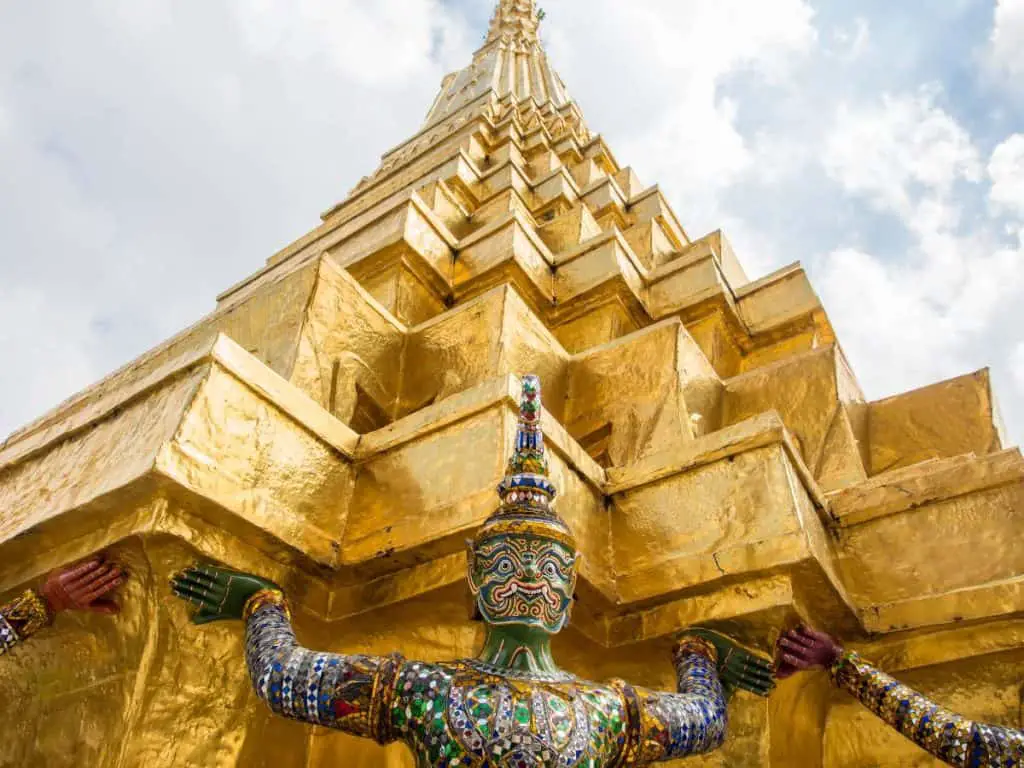
Adapting to a new culture is an ongoing process that can be both rewarding and challenging.
Overcoming Homesickness
It’s natural to experience homesickness in Thailand, especially in the beginning. Stay connected with loved ones back home, but also make an effort to build a new social network in Thailand. Engaging in familiar activities while also exploring Thai culture can help create a sense of balance.
Navigating Cultural Nuances
Understanding Thai superstitions and beliefs is crucial for respectful integration into Thai society. From the importance of the Thai royal family to local customs around the spirit houses, being aware of these cultural aspects will help you navigate social situations more gracefully.
Appreciating Thai Heritage
Immersing yourself in aspects of Thai culture can enrich your retirement experience. For instance, learning about the role of Muay Thai in Thai culture can provide insights into the country’s sporting traditions and national pride.
Savoring New Experiences
Thailand offers unique experiences that can become part of your new daily life. Exploring Thailand’s coffee culture can be a delightful way to start your mornings and connect with locals. For those with dietary preferences, living in Thailand as a vegan or vegetarian is increasingly accessible, with many plant-based options available in urban areas.
Retiring in Thailand offers a unique opportunity to immerse yourself in a rich, vibrant culture while enjoying a potentially more relaxed and affordable lifestyle. By thoroughly preparing for the move and approaching cultural differences with an open mind, you can create a fulfilling and exciting new chapter in your life.
Adaptation takes time, so be patient with yourself as you settle into your new home in the Land of Smiles. You need, to visit Living in Thailand as a Vegan or Vegetarian. This resource will help you enjoy the best of Thai cuisine while adhering to your dietary choices.
Practical Considerations for Long-term Living
Pet Ownership in Thailand
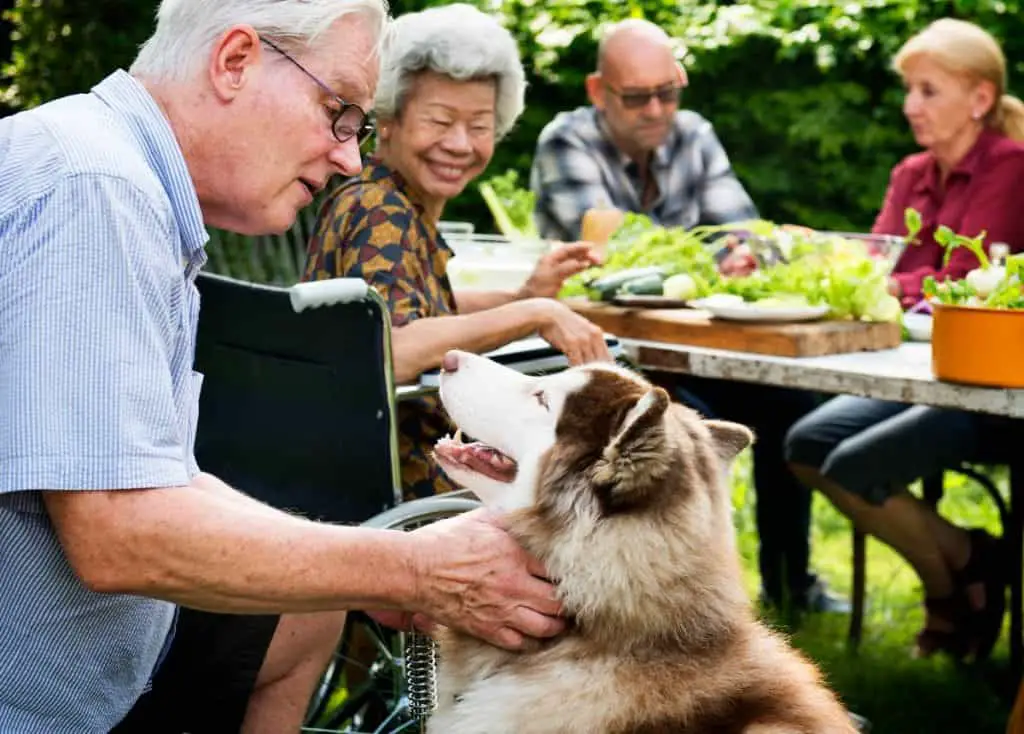
Retiring in Thailand offers a vibrant tapestry of experiences, and for many, this includes bringing along their beloved pets. Pet ownership in Thailand presents unique joys and challenges, with regulations and cultural attitudes differing from what many Westerners might expect. From import regulations to finding pet-friendly accommodations, understanding these nuances is crucial for a smooth transition with your furry companions.
Thailand’s Digital Nomad Visa (for those considering part-time work)
While many retirees envision a life of leisurely pursuits, some find fulfillment in part-time work or passion projects. The Thailand Digital Nomad Visa opens up exciting possibilities for those looking to blend retirement with remote work, offering a flexible lifestyle that combines the best of both worlds. This innovative visa option allows retirees to explore new professional avenues while enjoying Thailand’s rich culture and beautiful landscapes.
Long-term Healthcare Considerations
Healthcare is a critical aspect of retirement planning, especially when living abroad. Thailand’s healthcare system offers a mix of public and private options, with world-class facilities available in major cities. It’s essential to research and plan for long-term health needs, including insurance coverage and management of chronic conditions.
Building a Support System in Thailand
Creating a robust support network is crucial for thriving in your new home. Building a support system in Thailand goes beyond mere socializing; it’s about forging meaningful connections that enhance your daily life and provide a safety net in times of need. From joining expat clubs to engaging in local community activities, there are numerous ways to establish a strong social circle in the Land of Smiles.
Real Estate in Thailand

Best Property Locations in Thailand
When it comes to choosing where to settle, Thailand’s diverse landscape offers something for everyone. From bustling urban centers to serene coastal retreats, the best property locations in Thailand cater to a wide range of preferences and lifestyles. Each area has its unique charm, whether you’re drawn to the cultural richness of Chiang Mai or the tropical allure of Phuket. Exploring these options can help you find the perfect spot to call home during your retirement years.
Renting Property in Thailand
For those who prefer flexibility, renting a property in Thailand can be an excellent way to explore different regions before committing to a permanent home. Understanding the nuances of Thai rental agreements and tenant rights is crucial for a smooth renting experience. From negotiating lease terms to navigating cultural differences with landlords, renting in Thailand offers a unique set of challenges and opportunities.
Real Estate Agents in Thailand
Navigating the property market can be daunting, especially in a foreign country. Enlisting the help of a reputable real estate agent in Thailand can prove invaluable, offering local insights and helping bridge cultural and linguistic gaps. A good agent can guide you through the intricacies of Thai property law, help you find properties that match your criteria, and negotiate on your behalf.
Thailand’s Property Market Overview
To make informed decisions about property investment or long-term rentals, it’s essential to have a grasp of Thailand’s property market. Understanding current trends, legal considerations for foreign ownership, and potential investment opportunities can help you navigate this complex landscape with confidence. From booming urban developments to emerging coastal hotspots, Thailand’s diverse property market offers a range of options for retirees looking to invest or settle down.
Long-Term Living in Thailand
How to Live in Thailand Long-term
Embarking on a long-term stay in Thailand requires careful planning and a deep understanding of the country’s visa regulations and cultural nuances. Living in Thailand long-term offers a wealth of opportunities for personal growth, cultural immersion, and a laid-back lifestyle that many find irresistible.
From navigating the intricacies of visa applications to establishing a comfortable daily routine, the journey to becoming a long-term resident in the Land of Smiles is both exciting and rewarding. Whether you’re retiring, working remotely, or simply seeking a change of pace, understanding the legal requirements, housing options, and local customs is crucial for a smooth transition into Thai life.
First Aid Kit for Travel to Thailand

While Thailand boasts excellent healthcare facilities in major cities, being prepared for minor emergencies is essential, especially when venturing into more remote areas. Assembling a comprehensive first aid kit for your travels in Thailand is a smart precaution that can save you from unnecessary stress and discomfort.
From dealing with tropical heat and humidity to managing common traveler’s ailments, a well-stocked first aid kit is your first line of defense. Consider including items such as rehydration salts, anti-diarrheal medication, and insect repellent alongside standard first aid supplies. This small but crucial preparation can make a significant difference in your comfort and peace of mind as you explore all that Thailand has to offer.
Building a Support System in Thailand
One of the keys to thriving in a new country is establishing a strong support network. Building a support system in Thailand is not just about making friends; it’s about creating a safety net that enhances your quality of life and helps you navigate the challenges of living in a foreign culture. From joining expat groups and local community organizations to engaging in language exchange programs, there are numerous ways to connect with both fellow foreigners and Thai locals.
Thai Culture and Lifestyle
Immersing yourself in Thai culture and lifestyle is a fundamental part of the expatriate experience in Thailand. From ancient traditions to modern practices, understanding and appreciating these aspects can greatly enrich your life in the Kingdom.
Thai Approach to Mental Wellness
In a world increasingly focused on mental health, Thailand offers a unique perspective rooted in Buddhist philosophy and traditional practices. The Thai approach to mental wellness combines ancient wisdom with modern techniques, creating a holistic view of well-being that many find refreshing and effective. From meditation retreats in serene temple grounds to the practice of mindfulness in daily life, Thailand provides numerous avenues for cultivating inner peace and emotional balance.
Traditional Thai Wedding Customs
Even if you’re not planning to tie the knot, understanding traditional Thai wedding customs offers fascinating insights into Thai social structures, family values, and cultural beliefs. Thai weddings are colorful, joyous affairs steeped in tradition, from the intricate engagement ceremony known as ‘thong mun’ to the water-pouring ritual that blesses the newlyweds.
These customs reflect the importance of family, respect for elders, and the blend of Buddhist and animist beliefs that characterize Thai society. Whether you’re invited to a Thai wedding or simply curious about local traditions, learning about these customs can deepen your appreciation for the rich cultural tapestry of your adopted home.
Thailand’s Street Food Scene
No exploration of Thai culture would be complete without diving into the vibrant world of street food. Thailand’s street food scene is legendary, offering a tantalizing array of flavors, textures, and aromas that captivate food lovers from around the globe.
From sizzling satay skewers and fragrant pad thai to sweet mango sticky rice, the streets of Thailand are a culinary adventure waiting to be explored. Beyond the delicious tastes, street food in Thailand is a social experience, bringing people together and offering a window into local life. Navigating the bustling food markets and street-side stalls is not just about satisfying your hunger; it’s about immersing yourself in a fundamental aspect of Thai daily life and culture.
Adventure Sports in Thailand
For those seeking an adrenaline rush, Thailand offers a surprising array of options. Adventure sports in Thailand cater to thrill-seekers of all levels, from novices to experienced enthusiasts. The country’s diverse landscape provides the perfect backdrop for a wide range of activities, including rock climbing on the limestone cliffs of Krabi, white-water rafting in the north, kiteboarding in Hua Hin, and scuba diving in the crystal-clear waters of the Andaman Sea.
Engaging in these activities not only offers excitement but also provides unique ways to explore Thailand’s natural beauty and connect with like-minded adventurers. Whether you’re looking to push your limits or try something new, the adventure sports scene in Thailand adds an exhilarating dimension to life in the Kingdom.
Embracing these aspects of Thai culture and lifestyle can transform your experience from that of a mere observer to an active participant in the vibrant tapestry of Thai life. From finding inner peace through traditional wellness practices to savoring the flavors of street food and seeking thrills in nature, Thailand offers a rich and diverse array of experiences.
Education in Thailand
Education plays a vital role in shaping society, and understanding the educational landscape in Thailand can be crucial for expatriates, whether they’re considering options for their children or pursuing personal growth opportunities.
Thai Education System
The Thai education system offers a unique blend of traditional values and modern pedagogical approaches. From primary school through university, the system reflects Thailand’s cultural emphasis on respect, discipline, and collective harmony.
Public schools follow a national curriculum that includes Thai language, mathematics, science, and social studies, with English becoming increasingly emphasized. While the system has its strengths, such as fostering a strong sense of national identity and community, it also faces challenges in areas like critical thinking and creativity.
Understanding this system provides valuable insights into Thai society and the values it seeks to instill in its youth. For expatriates, it can also inform decisions about whether to enroll children in local schools for a more immersive cultural experience or opt for international education.
Best International Schools in Thailand
For many expatriate families, international schools offer a compelling educational option. The best international schools in Thailand provide high-quality education that often follows American, British, or International Baccalaureate curricula. These schools are typically found in major cities like Bangkok, Chiang Mai, and Phuket, catering to the diverse expatriate community.
They offer the advantage of continuity with educational systems back home, making transitions smoother for families on the move. Moreover, international schools often boast state-of-the-art facilities, a wide range of extracurricular activities, and a multicultural environment that prepares students for an increasingly globalized world.
While tuition can be steep, many expatriates find the investment worthwhile for the quality of education and the international perspective their children gain.

Lifelong Learning in Thailand
Education doesn’t stop with formal schooling, and Thailand offers numerous opportunities for lifelong learning. Whether you’re a retiree looking to explore new interests, a professional seeking to upskill, or simply someone with a passion for learning, Thailand provides a rich landscape for continuing education. Universities often offer part-time courses or short programs open to the public, covering everything from Thai language and culture to business skills and technology.
Community centers and temples frequently host workshops on traditional crafts, cooking, and meditation. For those interested in the arts, numerous studios offer classes in painting, pottery, and traditional Thai dance.
Online platforms have also made it easier to access courses from Thai institutions, allowing learners to explore subjects at their own pace. Engaging in lifelong learning not only enriches personal knowledge but also provides excellent opportunities to connect with like-minded individuals and deepen your understanding of Thai culture.
Working in Thailand
For many expatriates, working in Thailand offers a unique opportunity to blend professional growth with cultural immersion. Whether you’re seeking local employment, maintaining ties with a company back home, or venturing into entrepreneurship, Thailand’s diverse economy provides a range of possibilities.
Top Websites for Finding a Job in Thailand
Navigating the job market in a foreign country can be challenging, but Thailand offers several online platforms to ease the process. The top websites for finding a job in Thailand cater to various industries and skill levels, from entry-level positions to executive roles. Sites like JobsDB, ThaiJobs, and LinkedIn are popular among both local and international job seekers.
These platforms often feature listings from multinational corporations, international schools, and Thai companies seeking bilingual professionals. When using these sites, it’s crucial to tailor your resume to Thai preferences, which may differ from Western standards. Additionally, many of these platforms offer resources on work permit requirements and insights into the local job market, making them valuable tools for anyone looking to start or continue their career in Thailand.
Working for a US Company While Living Abroad
The rise of remote work has opened up new possibilities for those wanting to experience life in Thailand while maintaining employment with companies in their home countries. Working for a US company while living abroad in Thailand can offer the best of both worlds: a familiar work environment and the excitement of living in a new culture. However, this arrangement comes with its own set of challenges and considerations.
Time zone differences may require flexible working hours, and maintaining clear communication with your team becomes even more crucial. It’s also important to understand the tax implications of this arrangement, as you may have obligations in both the US and Thailand.
Ensuring a reliable internet connection and creating a productive home office environment are key to success in this digital nomad lifestyle. Despite these challenges, many find that the opportunity to live in Thailand while advancing their career with a US company is well worth the effort.
Business Ideas for Foreigners in Thailand

For those with an entrepreneurial spirit, Thailand offers a fertile ground for new ventures. Business ideas for foreigners in Thailand span a wide range of industries, from tourism and hospitality to education and technology.
Popular options include starting an English language school, opening a boutique hotel or guesthouse, launching a digital marketing agency, or creating eco-friendly products that cater to the growing sustainability market. The thriving expat community also presents opportunities for niche services such as relocation assistance or specialized food imports.
When considering business ideas, it’s crucial to research Thai business laws and regulations, as certain sectors have restrictions on foreign ownership. Partnering with a Thai national or exploring options like the Board of Investment (BOI) promotion can open up additional possibilities. Successful entrepreneurs in Thailand often find that combining their unique skills and experiences with local market needs leads to innovative and profitable ventures.
FAQs
What are the visa requirements for retiring in Thailand?
Retirees typically apply for a Non-Immigrant O-A (Long Stay) visa, requiring applicants to be 50+, have a clean criminal record, and meet financial criteria including a monthly income or bank deposit. Specific requirements may change, so check with the Thai embassy for the most current information.
How much money do I need to retire comfortably in Thailand?
The cost of living varies greatly depending on location and lifestyle. Generally, a budget of $1,500-$2,500 per month can provide a comfortable retirement in Thailand. This covers rent, food, utilities, healthcare, and leisure activities. Larger cities like Bangkok may require a higher budget.
Can I buy property in Thailand as a retiree?
Foreigners can own condominiums outright but cannot own land. However, you can lease land long-term or own it through a Thai company. It’s crucial to seek legal advice to navigate property ownership laws and ensure your investment is secure.
What healthcare options are available for retirees in Thailand?
Thailand offers a mix of public and private healthcare. Many retirees opt for private hospitals, which often provide high-quality care at lower costs than Western countries. It’s advisable to have comprehensive health insurance coverage to access the best medical facilities.
Do I need to learn Thai to live comfortably in Thailand?
While it’s possible to get by with English in tourist areas and expatriate communities, learning basic Thai can significantly enhance your daily life and cultural experience. Even a little Thai goes a long way in building relationships and navigating day-to-day situations.
Conclusion
Retiring in Thailand offers a unique blend of rich culture, beautiful landscapes, and modern amenities. From navigating visa requirements to building a new social circle, this guide has covered key aspects of making Thailand your retirement home. While challenges exist, the rewards of embracing Thai life can be immeasurable.
Remember, every retiree’s journey is unique. If you have specific questions or need personalized advice, don’t hesitate to reach out to us. We’re here to help you navigate your Thai retirement adventure.
Whether you’re dreaming of serene beaches, bustling cities, or mountain retreats, Thailand has something for everyone. With proper planning and an open heart, your retirement in the Land of Smiles can be the adventure of a lifetime.
